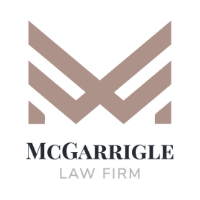Reinholds White Collar Crime Lawyer, Pennsylvania
Sponsored Law Firm
-
 x
x

Click For More Info:
-
The McGarrigle Law Firm
1500 Walnut Street, 22nd Floor Philadelphia, PA 19102» view mapWhite Collar Crime, Criminal Appeals, DUI&DWI Trial Experience & Zealous Advocacy
The Firm’s devoted attention to your individual concerns, our vast trial experience in all types of criminal matters, and our skillful advocacy will ensure that your rights are protected.
800-934-5330
Daniel McGarrigle
✓ VERIFIEDMilitary & Veterans Appeals, White Collar Crime, DUI-DWI, Criminal
Attorney Daniel McGarrigle is an aggressive advocate and experienced litigator; he has tried hundreds of cases and handled all types of criminal matte... (more)
Harry W. Fenton
Lawsuit & Dispute, Divorce & Family Law, White Collar Crime, Criminal
Status: In Good Standing
FREE CONSULTATION
CONTACTFREE CONSULTATION
CONTACTAlyssa Kusturiss Poole
Wills & Probate, White Collar Crime, Criminal, Corporate, Personal Injury
Status: In Good Standing Licensed: 21 Years
Aman "Tip" Barber
DUI-DWI, Traffic, Criminal, White Collar Crime
Status: In Good Standing Licensed: 31 Years
FREE CONSULTATION
CONTACTAndrew P Reeve
Mass Torts, Litigation, Lawsuit & Dispute, White Collar Crime
Status: In Good Standing Licensed: 14 Years
Anthony John Damiano
Grand Jury Proceedings, Internet, White Collar Crime
Status: In Good Standing Licensed: 10 Years
Arik T. Benari
DUI-DWI, White Collar Crime, Misdemeanor, Felony
Status: In Good Standing Licensed: 24 Years
FREE CONSULTATION
CONTACT
 Daniel McGarrigle Philadelphia, PA
Daniel McGarrigle Philadelphia, PA TestimonialsRecent Reviews
TestimonialsRecent Reviews Contact UsCall or Email
Contact UsCall or Email

